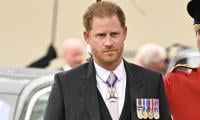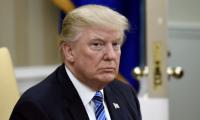Geneva: Covid vaccines reduce transmission of the dominant Delta variant by about 40 percent, the WHO said on Wednesday, warning that people were falling into a false sense of security.
The World Health Organisation’s chief Tedros Adhanom Ghebreyesus urged vaccinated people to continue to take measures to avoid catching Covid-19 and passing on the disease. He noted that last week, more than 60 percent of all reported cases and deaths from Covid-19 were once again in Europe.
The sheer number of cases was translating into unsustainable pressure on health systems and exhausted health workers, he said. "We’re concerned about the false sense of security that vaccines have ended the pandemic and people who are vaccinated do not need to take any other precautions," Tedros told reporters.
"Vaccines save lives but they do not fully prevent transmission. "Data suggests that before the arrival of the Delta variant, vaccines reduced transmission by about 60 percent. With Delta, that has dropped to about 40 percent."
The more transmissible Delta variant is now overwhelmingly dominant around the world, having all but crowded out other variants and the original strain. Of 845,000 sequences uploaded to the GISAID global science initiative with specimens collected in the last 60 days, 99.8 percent were Delta, according to the WHO’s weekly epidemiological report.
"If you are vaccinated, you have a much lower risk of severe disease and death but you are still at risk of being infected and infecting others," said Tedros. "We cannot say this clearly enough: even if you are vaccinated, continue to take precautions to prevent becoming infected yourself, and infecting someone else who could die."
Meanwhile, the Netherlands could announce tougher Covid-19 restrictions this week, just days after four nights of riots against the existing partial lockdown, the country’s health minister said on Wednesday.
A "gloomy and worrisome" rise in cases meant a cabinet meeting over coronavirus measures scheduled for December 3 had been brought forward by a week, said Health Minister Hugo de Jonge.
Ministers will consider advice from the Dutch outbreak management team before Prime Minister Mark Rutte announces the decisions in a press conference, de Jonge added. He said he would not "anticipate" what new curbs were under consideration, but Dutch media have reported they could include school closures as infections soar, particularly among children.
New measures risk inflaming an already tense situation in the Netherlands after police fired bullets and wounded five people during violent riots in Rotterdam last Friday. The trouble spread to The Hague on Saturday, with protesters hurling fireworks and stones at police and burning bikes, and to other cities including Groningen in the north on Sunday and Monday.
In total, 173 people were arrested and at least 12 people injured nationwide. Rutte’s last two coronavirus press conferences have also seen demonstrators clash with police in The Hague outside government ministries.
Coronavirus curbs brought in on November 13 included bars, restaurants, cafes and supermarkets closing at 8pm, sports matches being played behind closed doors, and limits on visitors to people’s homes.
The government warned earlier this week of "lockdown-like" measures if people did not start sticking to the rules, with new cases running at over 20,000 a day. It is also planning to introduce so-called "2G measures" that would bar unvaccinated people from bars and cafes.
In a related development, Cyprus warned the unvaccinated on Wednesday that they would be barred from social and entertainment events among fresh measures to stem a new wave in coronavirus cases.
Health Minister Michalis Hadjipantelas said that after December 15, anyone who has not received a Covid-19 vaccine will be banned from sporting events, restaurants, cinemas and nightclubs.
All Christmas events at schools have been banned, while mask-wearing in public will be mandatory for children from age six instead of 12, the minister said. Everyone aged over 14 must carry digital proof of vaccination.
Those who have not received a booster shot seven months after their last dose will also be unable to use their so-called ‘safe pass’ to access gatherings and public areas. Outbreaks of the virus have been recorded worldwide, said Hadjipantelas, "with an increase in daily cases, hospitalisations and deaths -- something that we also observe in our country."
According to EU data, the higher a country’s vaccination rate, the lower the mortality rate, said the minister, adding that "Cyprus comes fourth for the lowest death rates in the EU". "This was achieved because we prevented overcrowding in public hospitals while not allowing ourselves to get to the point of deciding who would live and who would die."
The government hopes to bolster vaccination rates as infection rates have doubled and hospital admissions have increased. Around 60 percent of Covid-19 hospital patients are unvaccinated. Booster jabs are also being rolled out to the adult population.
Meantime, leading Russian doctors on Wednesday invited celebrities and politicians with anti-vaccine views to visit Covid red zones in hospitals and see for themselves the effects of the pandemic.
In an open letter published by state news agency TASS, 11 doctors from several cities wrote to a dozen public figures who expressed anti-vaccine views to hundreds of thousands of followers on social media.
Russia, one of the countries worst-hit by the coronavirus pandemic, is struggling with widespread opposition to vaccination even though it has developed several homegrown jabs including Sputnik V.
Despite multiple pleas from President Vladimir Putin, only 37 percent of Russians are fully vaccinated and the country has seen more than 1,000 deaths a day in recent weeks. In their letter, the doctors told several singers, actors, TV personalities and politicians who had expressed scepticism over vaccinations that they would take the time to show them around Covid treatment centres.
Harvey Weinstein. — AFP FileNEW YORK: Harvey Weinstein’s 2020 conviction for sexual assault and rape was...
Liberal Justice Elena Kagan on Sept. 13, 2016. — Slate website WASHINGTON: U.S. Supreme Court justices, wading back...
A representational image of inmates behind jail bars. — Unsplash/FileMOSCOW: A Russian court on Wednesday ordered...
Sudanese soldiers guard the surrounding area of the UNMIS compound in El-Fasher, the administrative capital of North...
US quietly shipped ATACMS missiles to Ukraine. — Report news agencyWASHINGTON: The United States in recent weeks...
US President Joe Biden during his address in California. — AFP FileWASHINGTON: President Joe Biden signed a...







